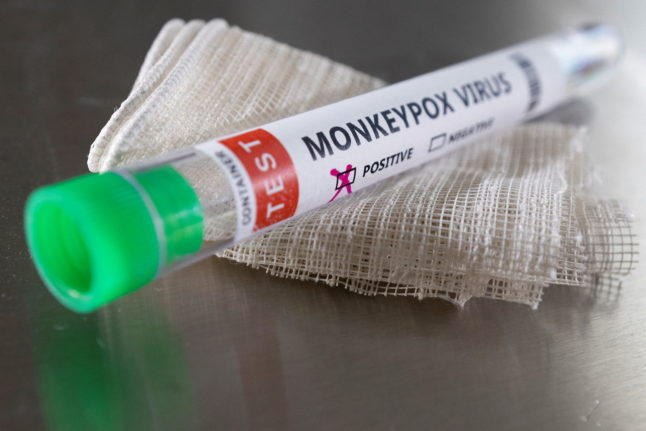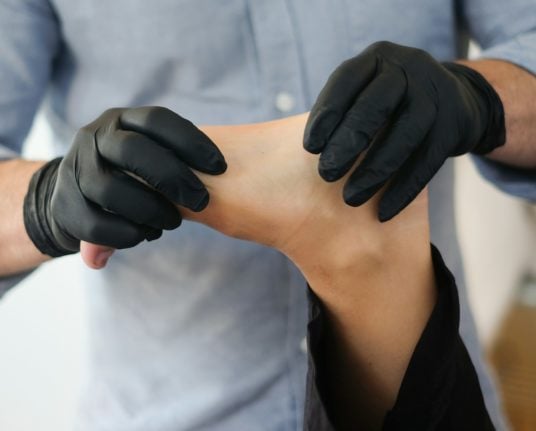The Ministry of Health has published a set of guidelines for authorities after Austria reported its first case of the disease on Monday.
A three week quarantine now applies to contacts of confirmed cases, but only if they are showing symptoms of monkeypox, reports Der Standard.
The isolation period can be completed at home or at hospital, depending on the state of health of the patient.
Furthermore, contacts of a positive case will be treated as either Type I or Type II in a move similar to the management of Covid-19 contacts.
READ MORE: Monkeypox in Austria: What causes it and is it serious?
Type I contacts are considered as high-risk and include those who have had direct contact with skin lesions of an infected person, such as sexual partners, but also close passengers on planes, buses or trains for a period of at least eight hours.
High-risk contacts do not have to isolate straight away but must monitor their condition for 21 days through a daily phone call with the health authorities. If symptoms occur, then the person has to quarantine for three weeks and a PCR test has to be carried out.
Type II contacts are short social contacts, such as work colleagues (not in the same office), or fleeting contacts in gyms, saunas or bathrooms. These contacts must monitor their health for 21 days.
READ ALSO: More pay and longer holidays: How Austria hopes to attract 75,000 new nurses
A case of monkeypox is confirmed after a positive result from a PCR test and Austria currently only has one confirmed case of monkeypox in Vienna.
The Ministry of Health has confirmed that positive cases of monkeypox are contagious for the entire duration of an infection, which can last from two to four weeks.
What are the symptoms of monkeypox?
The disease displays symptoms in two phases.
The first stage involves a high temperature, muscles aches, back ache, chills, headache, swollen glands and exhaustion.
This is typically followed a few days later by a rash on the mouth, throat, face, hands and forearms before spreading to other parts of the body. The genital area can also be affected.
READ MORE: Austria to ‘pause’ Covid mask mandate from June 1st
A patient is no longer contagious when the rash has disappeared.
To be considered a suspected case, a person must have been in contact with a probable or confirmed case of monkeypox, recently returned from West or Central Africa or been in contact with a potentially infected animal.
Additionally, a person must have developed a rash of unknown cause and at least two other symptoms (e.g. fever, chills) within 21 days after contact.




 Please whitelist us to continue reading.
Please whitelist us to continue reading.
Member comments